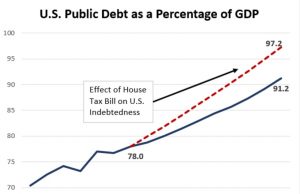In the wake of President Biden’s debate performance and sagging poll numbers, there is growing concern that the party must make a change. Some rumors suggest that if President Biden decides to step down, he will encourage his delegates to shift their support to Vice President Harris. Some party activists argue that her position as Vice President give her the right of first refusal to the party’s nomination. Still others make the argument that the Biden campaign war chest would legally be hers and would not be available to any other candidate that the Democratic Convention might choose.
If the convention were to be guided by these arguments it would be a huge mistake. After all of the pain and trauma of recent weeks we would have produced a great deal of bloodshed and no forward progress.
Kamala Harris has a presence that is confident, sophisticated, articulate, and intimidating. That is not necessarily a bad thing. At a cocktail party at the Fairmont in San Francisco or the Ritz Carlton in New York it would be seen as a good thing. But that is not where she is asking her party to send her.
But whomever the Convention selects will spend a very large portion of time in Michigan, Pennsylvania and Wisconsin. If Democrats win those three states, Donald Trumnp will not return to the White House. Whomever they pick will be fighting the GOP trope that the Democratic Party has been taken over by coastal elites that look down on Middle Americans and the people who inhabit it. They will fight to show that they share the same concerns, values and tastes of people who have chosen to live in places that these “coast elites” supposedly view as dull, backward and out of step.
Can the case be made that Kamala can become that person?
Certainly, her electoral record provides little or no evidence of such skill. She has never won a race outside of the State of California. Her bid for the 2020 nomination did demonstrate (at least temporarily) fund raising prowess. And, a few months into the campaign she had garnered the support of as much as 20% of Democrats in national surveys. But those numbers could not be sustained. After being subjected to closer scrutiny, Harris supporter began to find other candidates. By December 1, 2019, her support nationally among Democrats had dropped to only 3.7 percent in the daily average of national polling maintained by the website Real Clear Politics.
Hoping to score a major upset in Iowa, Harris had deployed 50 field organizers to the state along with another 20 “paid fellows”. She told Hawaii Senator Mazie Hirono, “I am fucking moving to Iowa,” But despite a healthy ad budget, relentless crisscrossing of the state a her considerable campaign organization, her support among state Democrats fell to only 3 percent according the highly regarded Selzer Poll completed by the Des Moines Register on November 13, 2019. Less than three weeks later she ended her campaign.
Equally disturbing in weighing Harris’s prospects for preventing Trump from having a second term in the White House was the nearly continuous state of chaos in her 2019 campaign for almost all of the 11 months it lasted. The New York Times reported
Ms. Harris and her closest advisers made flawed decisions about which states to focus on, issues to emphasize and opponents to target, all the while refusing to make difficult personnel choices to impose order on an unwieldy campaign, according to more than 50 current and former campaign staff members and allies…
Many of her own advisers are now pointing a finger directly at Ms. Harris. In interviews several of them criticized her for going on the offensive against rivals, only to retreat, and for not firmly choosing a side in the party’s ideological feud between liberals and moderates.
Commenting on the status of the campaign, The Times noted, “Even at this late date, aides said it’s unclear who’s in charge of the campaign.”
The story also contained portions of an interview with Harris supporter and Congressional Black Caucus Chair Marsha Fudge in which she told the Times,
Ms. Harris bore a measure of responsibility for her problems — “it’s her campaign” — and that the structure she created has not served her well.
“I have told her there needs to be a change,” said Ms. Fudge, one of several women of color who have been delivering hard-to-hear advice to Ms. Harris in recent weeks. “The weakness is at the top.”
Despite a war chest of about $40 million with a very heavy focus on Iowa–a state with only 630,000 registered Democrats—Harris’s declining poll numbers and withering financial support forced her to withdraw from the Presidential race only 7 weeks before the Iowa Caucuses. Her remaining supporters in the state elected no delegates on her behalf. When the national convention met in Milwaukee in August, delegates from across the country cast votes for a total of 7 different candidates who had entered the presidential race the previous year. Harris was not among them.
Despite her poor showing in the race for the 2020 Democratic nomination, Joe Biden stunned many by selecting her as his Vice Presidential running mate.
But before she had finished her first six months in office, Politico reported that many of the same issues that afflicted her Presidential campaign had already surfaced in the Vice President’s office:
Harris’ team is experiencing low morale, porous lines of communication and diminished trust among aides and senior officials. Much of the frustration internally is directed at Tina Flournoy, Harris’ chief of staff, a veteran of Democratic politics who began working for her earlier this year.
The publication conducted interviews with 22 current and former vice presidential aides, administration officials and associates of Harris and Biden.
They described a tense and at times dour office atmosphere. Those interviewed reported that ideas are ignored or met with harsh dismissals and decisions are dragged out. Often, they said, she refuses to take responsibility for delicate issues and blames staffers for the negative results that ensue.
While much of the ire is aimed at Harris’ chief, two administration officials said the VP herself also bears responsibility for the way her office is run. “It all starts at the top,” said one of the administration officials, who like others requested anonymity to be able to speak candidly about a sensitive matter.
The Washington Post found much the same environment writing about the same issues six months later.
The rumors started circulating in July: Vice President Harris’s staff was wilting in a dysfunctional and frustrated office, burned out just a few months after her historic swearing-in and pondering exit strategies. A few days later, Harris hosted an all-staff party at her official residence, where most of her office bit into hamburgers and posted pictures of smiling, congenial co-workers on Twitter, pixelated counterpoints to the narrative of an office in shambles.
But the quartet of soon-to-be-empty desks reignited questions about why Harris churns through top-level Democratic staff, an issue that has colored her nearly 18 years in public service, including her historic but uneven first year as vice president. Now, those questions about her management extend to whether it will hamper her ability to seek and manage the presidency.
“It’s clear that you’re not working with somebody who is willing to do the prep and the work,” one former staffer said. “With Kamala you have to put up with a constant amount of soul-destroying criticism and also her own lack of confidence. So you’re constantly sort of propping up a bully and it’s not really clear why.”
At the time of the inauguration, Harris’s approval rating based on 538’s averaging of publicly available polls was 48.1 percent. Not great, but nearly 11 points above her 37.4% disapproval rating. That approval level held for a little more than 7 months when it began falling precipitously. By mid-November it had fallen to below 40 percent and remained near that level until this past year when it sank to range between 35 and 50% According The Los Angeles Times that is below the ratings of Vice President Mike Pence and significantly below the ratings of Vice Presidents Biden, Cheney and Gore.

It is also important to note that Harris fails to garner support among groups who she was expected to appeal to when she was added to the Democratic Ticket. Tabs from the latest Economist/YouGov Poll (which gives Harris an overall approve/disapprove rating of 39%/55%–a little above mid-range for recent polling) shows that she gets a “Very Favorable” rating from only 18% of women and an overall favorability rating among women of only 40%, very little better than she does among men.


Among Black voters, 32% have an impression that is “Very Favorable” while 34% have one that is “Somewhat Favorable” 9% are “Somewhat Unfavorable” and 12% “Very Unfavorable”. While her net favorability among Black voters is still a positive 66/21, it is actually below that of the “old White guy” she has been expected to share the ticket with this November.
While many observers have been alarmed by Biden’s overall favorability rating among Blacks, the Economist poll, showed it was still higher than Harris’s. A total of 72% approved while 24% disapproved.
When viewed in the light of Black support of the national Democratic ticket in previous elections these numbers spell trouble. Al Gore got 90% of the Black vote in 2000, John Kerry 88% in 2004, Hilary Clinton got 91% in 2016 and Barack Obama got 95% and 93% in 2008 and 2012. It is difficult to look at Harris’s favorability rating and not wonder if she may not be a drag on the Party’s chances in holding the 87% share of the black vote that the party won in 2020.
While Harris’s favorability among women does not trail Biden’s.
But neither is it significantly stronger. The number of women who “Strongly Favor” Harris is 18%, the same as Biden. Harris has only a one point edge among those who are “Somewhat Favorable.”
Research increasingly points to the probability that Donald Trump will be the next president if Joe Biden remains his opponent. But Party Leaders must also contend with the fact that if his Vice President were chosen to replace him, the odds of defeating Trump might actually decline.
But bypassing Harris might actually be less difficult than many commentators (some obviously armed with White House talking points) have argued. While the Constitution clearly guarantees that a vice president will succeed a sitting president if the president is unable to fulfill his or her duties, no such obligation is placed on a political party in selecting a nominee to stand for election. Indeed, Harris has little or no legal or procedural claim on the convention’s decision as to whom to nominate. Her name was not included on primary ballots in any state and the decision as to whether she should be considered for either the presidency or the vice presidency is left completely in the hands of the convention.
It should further be noted that the previous convention’s selection of her to become the vice presidential nominee was not based on the support she had built among the delegates but solely by the endorsement of Biden. Despite 11 months of campaigning for the office president there was not a single Harris delegate at that convention.
It is true that the substantial war chest that the Biden Campaign has built through soliciting the contributions of Democrats across the country does not legally have to be spent in behalf of candidates that might replace them on the ballot and could in fact be given instead to charities. But to do so would be a gross abuse of the shared loyalty to the principal and beliefs of the Democratic Party.
Tens of thousands of people showed their trust in Joe Biden and Kamala Harris by giving money that they could well have spent for their own needs. In most instances they gave it largely or even entirely to stop Donald Trump.
While those close to Biden or Harris may suggest in off the record comments to reporters that either Biden or Harris would not make those funds available to the campaign, it would be an entirely different matter for either of them to publicly take such an action. For either of them to direct that the funds be used for a purpose other than defeating Trump (simply because the delegates decided that other candidates were better equipped to defeat Trump) would be an astounding breach of trust—one that would terminate all semblance of leadership or influence within the party or national politics for either of them, for the remainder of their careers.
In the unlikely event that situation should arise, Democrats would be better off with candidates that can be sold to the electorate even if they are short of the funds needed to see them. Attempting to use hundreds of millions of dollars in television and internet advertising to change minds that are already made up is not the path to success. People do not forget what they have seen with their own eyes. The negligible results of the extensive ad blitz of the Biden campaign in recent months seems to bear strong testimony to that fact.
Joe Biden and Kamala Harris are both talented people and there is an enormous range of important jobs that both could do well. But at this point in time, being their Party’s nominee for President of the United States is not one of them. They are doing their country, their party and all of the things I know they both believe in, a great disservice by continuing to argue to the contrary.











